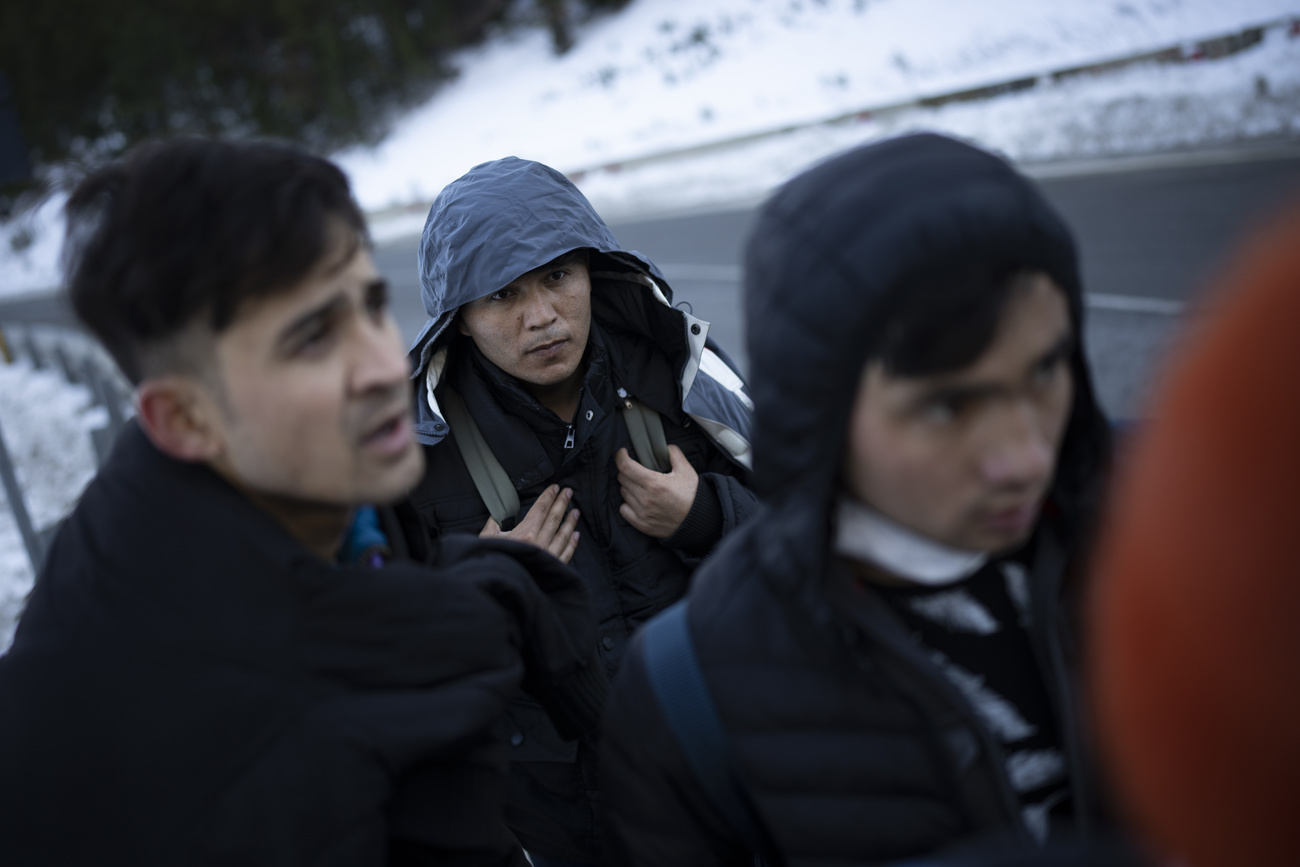
Illegal immigration into Switzerland almost tripled in 2022

More than 52,000 cases of illegal migration were recorded from January to December, about 33,000 more than the previous year.
Many migrants arrived illegally in Switzerland across the borders with Austria and Italy, the Federal Office of Customs and Border Protection said on Thursday. The increase was mainly due to the influx of migrants from Afghanistan and Morocco.
According to information from border guards, many of those entering the country were in possession of an Austrian asylum procedure card. Most of them were young Afghans who had already been in Europe or Turkey for some time. They mostly want to travel on to France or the UK.
A total of 476 people smugglers were arrested in 2022.
Cooperation with Austria
There had already been a sharp increase in illegal entries in 2021. Since that summer, more and more Afghan migrants have been entering eastern Switzerland illegally by train from Austria. To handle the administrative procedures, the canton of St. Gallen opened a migrant processing centre in Buchs at the beginning of 2022.
Last September, Switzerland and Austria agreed on a bilateral action plan to reduce illegal migration. Among other things, the two countries agreed on additional cross-border searches and operations to combat smugglers. Joint patrols are to be carried out in cross-border rail traffic.

In compliance with the JTI standards
More: SWI swissinfo.ch certified by the Journalism Trust Initiative



























You can find an overview of ongoing debates with our journalists here . Please join us!
If you want to start a conversation about a topic raised in this article or want to report factual errors, email us at english@swissinfo.ch.